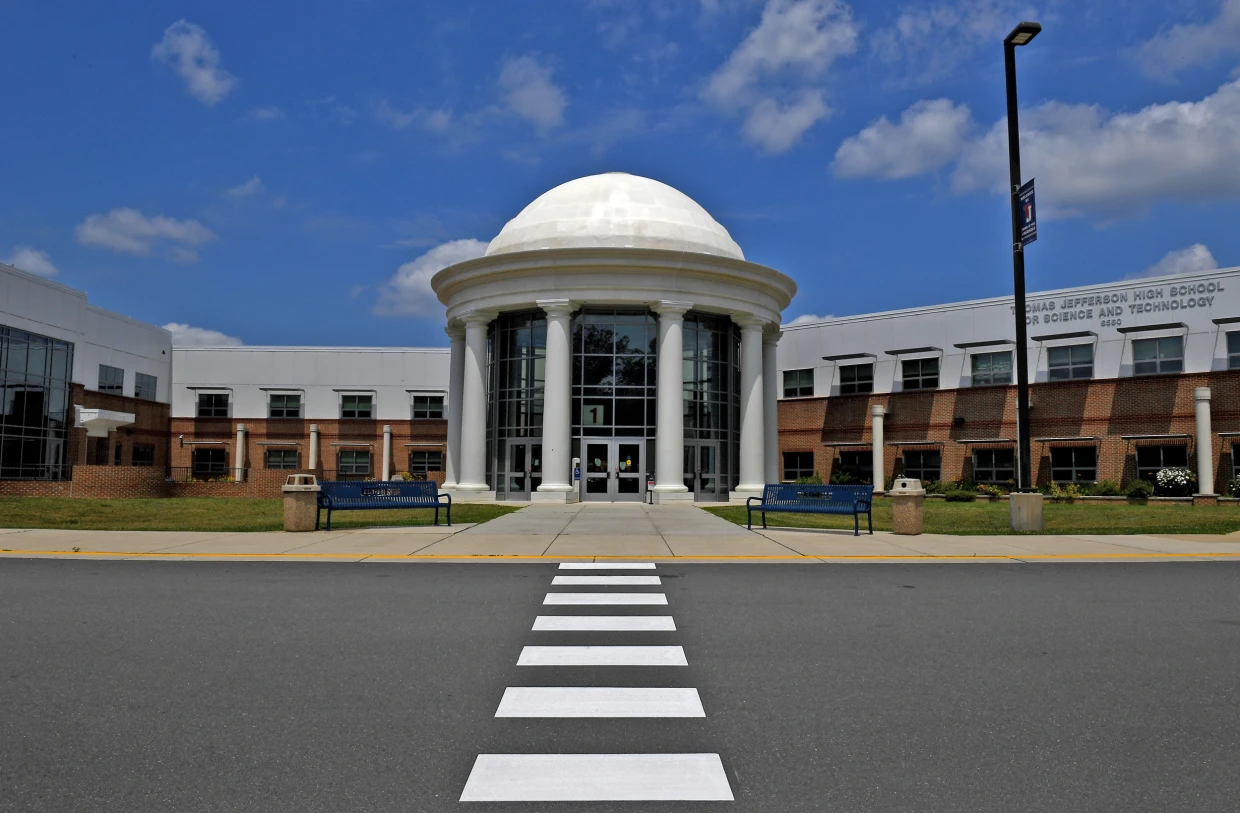The Supreme Court on Tuesday avoided another contentious debate over race and education by turning away a challenge to an admissions policy aimed at encouraging diversity at a Virginia high school.
The high court’s decision not to intervene in the case comes just months after the conservative court ended the consideration of race in college admissions. It leaves in doubt whether the court, which has a 6-3 conservative majority, has the votes to strike down admissions policies that do not explicitly consider race but nevertheless lead to a more diverse class.
Two conservative justices, Samuel Alito and Clarence Thomas, dissented, saying the court should have struck down the policy.
“We should wipe the decision off the books,” Alito wrote of the lower court decision that allowed the admissions process to remain in place. The appeals court effectively concluded that “intentional racial discrimination is constitutional so long as it is not too severe,” he added.
Virginia Governor Glenn Youngkin, a Republican, said in a post on X that he was disappointed the Supreme Court did not take up the case.
“This nation was built on the idea of building a better future through hard work and determination and we should recommit to those ideals. Admissions should be based on merit,” he added.
The latest case involved Thomas Jefferson High School for Science and Technology, a highly selective public high school in Fairfax County, Virginia, that introduced a new admissions policy in 2022.
The school maintains that the policy, which does not consider standardized test scores and guarantees places for top students in various middle schools in the county, is race neutral.
“We have long believed that the new admissions process is both constitutional and in the best interests of our students,” Karl Frisch, the chairman of the Fairfax County School Board.
The changes led to a decline in the number of Asian American students and an increase in Black and Latino students.
A group called Coalition for TJ, which opposes the policy, sued, citing evidence that the plan was implemented with an intent to “racially balance the freshman class by excluding Asian-Americans.”
The challengers say the policy violates the Constitution’s 14th Amendment, which requires that the law apply equally to everyone.
“The Supreme Court missed an important opportunity to end race-based discrimination in K-12 admissions,” said Joshua Thompson, a lawyer for the plaintiffs.
He argued in court papers that the court should take up the case because other high schools have adopted similar plans that are intended to “accomplish a racial objective” while appearing on their face to be race neutral.
The school board’s lawyers argued that the new policy “removes both socioeconomic and geographic barriers” using criteria that is “race neutral and race blind.”
The Supreme Court in its June decision invalidated the admissions programs at Harvard University and the University of North Carolina on those grounds. Conservatives have long complained about affirmative action, which the Supreme Court had previously upheld on narrow grounds.
Before the recent Supreme Court ruling, a federal judge ruled against the Fairfax County School Board in the Virginia case.
In April 2022, the Supreme Court turned away a request from the challengers asking for the district court judge’s ruling to be immediately implemented.
The Richmond-based 4th U.S. Circuit Court of Appeals then reversed the district court ruling in a May 2023 ruling that came just a month before the Supreme Court’s decision ending the consideration of race in college admissions. Coalition for TJ then appealed to the Supreme Court.

